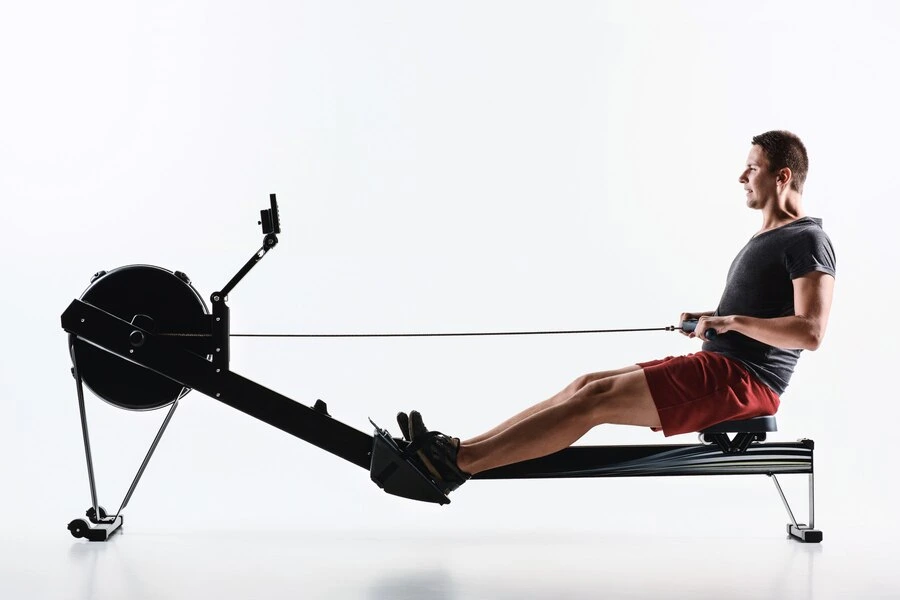How fitness exercise relates to nutrition. So fitness exercise and nutrition are interconnected elements that play important roles in achieving overall health and well-being. The relationship between them is often described as a synergistic partnership. Here’s how they relate:
- Energy Balance: Engaging in fitness exercises helps burn calories, contributing to weight management. Proper nutrition ensures that the body receives the necessary energy and nutrients to support exercise and daily activities.
- Muscle Building: Exercise, especially strength training, stimulates muscle growth and repair. Adequate protein intake from nutrition is essential for muscle development and recovery.
- Performance Enhancement: Proper nutrition provides the fuel needed for optimal physical performance during workouts. Carbohydrates, in particular, are important for sustained energy during exercise.
- Recovery: After a workout, the body needs nutrients to recover. A balanced diet with the right mix of carbohydrates, proteins, and fats supports the body’s recovery process, reducing the risk of injury and fatigue.
- Weight Management: While exercise contributes to calorie expenditure, nutrition plays a key role in managing calorie intake. The combination of a balanced diet and regular exercise is effective for weight control.
- Overall Health: Both nutrition and exercise contribute to overall health. A well-rounded diet supports immune function, bone health, and various physiological processes, while regular exercise reduces the risk of chronic diseases.
What Does Nutrition Do for Your Body?

nutrition is what you get from eating a well-balanced, healthful diet.
The way the food pyramid is organized makes it simple to determine how much of each nutrient group you should eat each day.
The food pyramid guidance is broken down into six components. These are:
Grains Fruits Veggies
Milk Fats
Beans with meat
Eating the daily suggested amount of each food group should provide your body with all the nutrients it needs to stay healthy.
Your body obtains energy, calcium, fat, vitamins, minerals, phytochemicals, and antioxidants from a healthy diet. All of these are essential for leading a healthy lifestyle, and you should make sure you are getting all the nutrients you need when exercising.
What Does Exercise Do for Your Body?

Your body needs exercise to be functional and conditioned. You can’t have a strong, healthy physique if you don’t use your muscles and joints. Exercise helps you stay in shape, build endurance and flexibility, and ward off a number of illnesses.
Your body will just stop working if you do not move it. Illness brought on by inactivity can take many different forms. For instance, you might gain weight, experience weight increase, suffer stiff joints, experience depression or lethargy, or develop diabetes or a cardiac disease.
Illness usually has a compounding effect. Imagine gaining weight if you never exercised. Diabetes may result from the weight gain. Diabetes can cause circulation issues, blindness, and death.
Similar to many other medical disorders, this can frequently be prevented or at least lessened by exercise.
also read this
Fitness Exercise: Fueling the Body with Movement

Fitness exercise, physical activity that enhances cardiorespiratory fitness, muscular strength, and flexibility, is the cornerstone of a healthy lifestyle. It serves as the driving force behind numerous health benefits, including weight management, disease prevention, and improved mental health.
During exercise, our bodies undergo a series of metabolic processes to generate energy, primarily fueled by carbohydrates. These carbohydrates, stored in muscles and the liver, are broken down into glucose, which serves as the immediate source of energy for muscles to contract and perform movements.
Adequate carbohydrate intake is crucial for optimal exercise performance. When carbohydrate stores are depleted, the body may resort to breaking down muscle tissue for energy, leading to fatigue and hindering performance. Consuming carbohydrates before, during, and after exercise helps replenish energy stores and maintain performance levels.
Nutrition: Providing the Building Blocks of Health
Nutrition, on the other hand, provides the building blocks for a healthy body, supplying the essential nutrients required for growth, repair, and proper functioning. A balanced diet rich in fruits, vegetables, whole grains, lean protein sources, and healthy fats provides the body with the tools it needs to thrive.
Protein, a critical macronutrient, plays a pivotal role in muscle growth, repair, and maintenance. After exercise, muscle fibers undergo microscopic tears, and protein is essential for the repair and rebuilding process. Consuming protein-rich foods after exercise helps muscles recover and adapt to the training stimulus, leading to improved strength and endurance.
Vitamins and minerals, often overlooked in discussions of nutrition, are equally important for optimal health and exercise performance. Iron, for instance, is crucial for transporting oxygen to muscles, ensuring they have the oxygen they need to function effectively during exercise. Deficiencies in vitamins and minerals can lead to fatigue, reduced performance, and increased susceptibility to injury.
Practical Strategies for Achieving Balance
To reap the full benefits of the dynamic duo of fitness exercise and nutrition, it is essential to strike a balance between these two components. Individual needs and goals will dictate the specific approach, but some general principles can guide the process:
1. Prioritize Nutrient-Dense Foods: Focus on consuming whole, unprocessed foods that provide a rich array of nutrients. Fruits, vegetables, whole grains, lean protein sources, and healthy fats should form the foundation of a balanced diet.
2. Tailor Nutrition to Exercise Regimen: Adjust nutrient intake based on exercise frequency and intensity. Higher carbohydrate and protein intake may be necessary for those engaging in intense or prolonged exercise.
3. Time Nutrient Intake Strategically: Consume carbohydrates before, during, and after exercise to provide sustained energy and support muscle recovery. Protein intake is particularly important after exercise to promote muscle growth and repair.
4. Seek Professional Guidance: Consult a registered dietitian or sports nutritionist for personalized recommendations tailored to individual needs and goals.
Conclusion: A Journey Towards Wellness
The dynamic duo of fitness exercise and nutrition holds the key to achieving optimal health and well-being. By understanding their intertwined relationship and implementing practical strategies to balance these two components, individuals can embark on a journey towards a healthier, more fulfilling life.
FAQ’S
Q: What are some tips for healthy eating?
A: Eat plenty of fruits, vegetables, and whole grains. Choose lean protein sources. Limit unhealthy fats, processed foods, and sugary drinks.
Q: What can I do to prevent exercise injuries?
A: Warm up before each workout and cool down afterwards. Stretch regularly. Wear appropriate footwear. Listen to your body and rest when you need it.
Q: What are some tips for healthy eating?
A: Eat plenty of fruits, vegetables, and whole grains. Choose lean protein sources. Limit unhealthy fats, processed foods, and sugary drinks.
Q: How can I stay motivated to exercise?
A: Find an exercise partner or join a class. This can help you stay accountable and motivated. Set realistic goals and track your progress. Celebrate your achievements along the way.
Q: What supplements should I take?
A: There are many different supplements on the market that are marketed to athletes and fitness enthusiasts. However, there is no one-size-fits-all answer to this question. If you are considering taking a supplement, talk to your doctor or a registered dietitian first.






